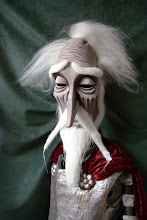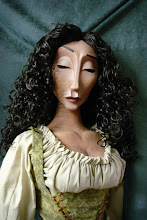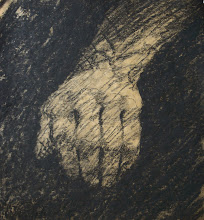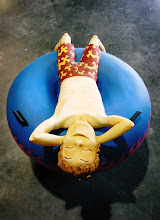Emergency preparedness is a great thing. There's more I need to do to feel adequately prepared-- but I did make some fire starters. Some of these were part of a Christmas gift for my brother-in-law (yeah, he's kind of hard to shop for) but having the deadline helped me get it done. I'm finally getting around to posting about it. It was a fun experience I would like to share.
First off, fire starters are great to have in your emergency/camping kit. They function to decrease or eliminate the amount of kindling you need to build a fire because in less-than-ideal situations nice dry kindling can be hard to come across in quantity. So these little guys are easy to light and help get any larger pieces of wood ablazin'. But if you go shopping for them online you will find that they can get a bit pricey... especially for a great number of them.
There are several ways to make your own for a lot less. I made just two kinds (both found in my Cub Scout Leader How-To Book-- handy). The first is essentially coiled strips of corrugated cardboard with a cotton twine wick nestled inside a shallow can then filled (or mostly filled) with melted wax-- it's called a "buddy burner" in the scout book.
See the wax? This is an 11 pound block I bought at Micheals. There might be cheaper places to get large amounts of wax but with a 50% off coupon it wasn't too painful and not bad considering that the rest of the materials are either found or re-purposed.
Next I called up someone I knew who loves her cats. You probably already know a person like this. She has many cats and loves them so much she goes through several small cans of cat food a day (these are also the softest cats I've ever met! seriously). I asked her to save some for me which she did gladly, she even cleaned them out for me! So yay for free!
Here is one with the cardboard coiled inside. I first did a test strip to figure out wide and long each strip needed to be. These were 1 1/4" wide and 29" in length but it can be several strips to add up to 29" not just one long piece. It's not hard to find a beat up cardboard box and I cut them with my rotary cutter which made the operation fast and easy. The wicks are cotton twine (used our used garden twine) with a knot at the bottom to help it not slip out.
I then broke up the big block of wax and melted pieces in a double boiler. Now you don't want to use your food pots for this. I have a pot that I have designated for non-food use (dying small pieces of fabric, shaping thermoplastic etc.) that I boiled the water in and used a large can in which I melted the wax and then poured into the prepared cat food cans. In the future I would use another coupon and just get the metal pitcher designed for making candles-- I suspect it wouldn't dribble as much as the big tomato juice can, that was a problem.
The second type of fire starter (also found in the cub scout book) I made with cardboard egg carton flats, filled with sawdust and then filled with melted wax. *tip* keep the plastic top that comes with the eggs and place it under the carton part so they nest together to catch any wax that may seep through the cardboard (when it cools it can be chipped out and melted down again).
So this is how many fire starters 11 pounds of wax makes... okay maybe more like 10.8 pounds-- I had a little left over and spilled some on my floor (so if you're ever in my kitchen watch out for the slick spots). 51 buddy burners and 60 egg cup starters. Not bad.
Okay so I made fire starters to help be prepared for an emergency or even just to go camping or backpacking. It would be plain irresponsible to neglect to test them! hee hee! For some reason I had it in my head that the book said the tuna can sized buddy burner would burn for about 40 minutes. As I check the book now it says no such thing... curious. But at the time that was what I was expecting. This is what a timed trial showed:
So while I did get chilly (I was in Sacramento at the time so it wasn't as bad as it would have been in Michigan) I was pleasantly surprised how long and how strong the flame was from the buddy burner. Three of them together could form a small campfire. The egg cup starter went up really quickly which can be nice if your fire only need a little help and is pretty dry.
Of course a starter such as these would be useless if you don't have a way to ignite them. For that we have strike anywhere matches made water resistant by painting them with clear nail polish stored in a waterproof container with a strip of sand paper (although Dennis can light them with his thumb-- more cool than the dudes that crush aluminum cans on their foreheads for sure). We also have flint and steel with a ziplock bag of dryer lint as well as a few water resistant lighters.
So figuring that each buddy burner lasts an average of 1:05 and each egg cup starter lasts 9 minutes then the total fire time form this batch of starters would be about 64 hours and 15 minutes. sweet!





















No comments:
Post a Comment